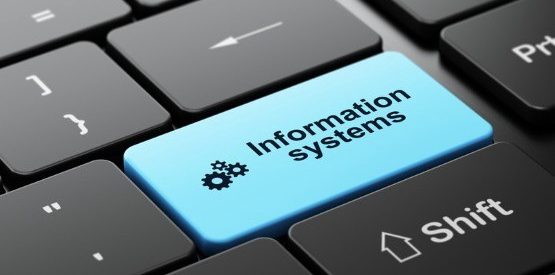Originally answered Jul 9, 2017

Here are 100 examples ? 10 categories each with 10 types.
1. Sales and Marketing
- Sales Management
- Marketing Management
- Lead Generation and Tracking
- Order Processing and eCommerce
- Reservation Management
- Customer Relationship Management (CRM)
- Customer Intelligence
- Customer Support Call Center
- Customer Chat
- Customer Loyalty
2. Operations
- Enterprise Resource Planning (ERP)
- Operations Support
- Engineering
- Manufacturing
- Distribution
- Logistics
- Inventory and Stock Control
- Scheduling
- Process Control
- Procurement
3. Research & Development and Medical
- Research Management
- Laboratory Information Management System (LIMS)
- Scientific Information Management
- Innovation Management
- Intellectual Property Management
- Clinical Information System (CIS)
- Hospital Information System (HIS)
- Electronic Medical Record (EMR)
- Electronic Health Record (EHR)
- Drug Information System (DIS)
4. Financial
- Accounts Payable
- Accounts Receivable
- General Ledger
- Budgeting and Planning
- Forecasting and Reporting
- Expense Management
- Funds Transfer
- Investment and Portfolio Management
- Shareholder and SEC
- Tax Processing
5. Human Resources
- Recruiting and Hiring
- Personnel Data
- Payroll
- Staffing
- Performance Management
- Time Entry
- Expense Reporting
- Travel
- eLearning and Learning Management System (LMS)
- Gamification and Recognition
6. Productivity
- Project Management
- Email and Calendar
- Word Processing
- Spreadsheets
- Presentations
- Notes and Databases
- Workflow
- Web Conferencing
- Team Chat
- Voicemail
7. Information Management
- Electronic Content Management (ECM)
- Document Management
- Records Management
- Images
- Videos
- Geographic Information Systems (GIS)
- Executive Information Systems (EIS)
- Management Information Systems (MIS)
- Planning
- Reporting
8. Business Intelligence
- Big Data
- Data Warehouses
- Data Lakes
- Decision Support
- Modeling
- Prediction Markets
- Analytics and Text Analytics
- Visualization
- Market Research
- Competitive Intelligence
9. Artificial Intelligence and Cognitive Computing
- Expert Systems
- Neural Networks
- Natural Language Processing
- Machine Learning
- Deep Learning
- Intelligent Agents
- Intelligent Personal Assistants
- Chatbots
- Robotic Process Automation (RPA)
- Pattern Recognition
10. Knowledge Management
- Repositories and Knowledge Bases
- Digital Workplace
- Social Business
- Enterprise Collaboration
- Enterprise Taxonomy
- Enterprise Search
- Expertise Location and Skills Inventory
- Intranets and Portals
- Syndication and Subscription Management
- Idea Management
See also:
- Knowledge Management Technology Components
- Different Types of Information System and the Pyramid Model by Chris Kimble


